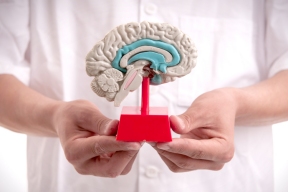
We already know that high blood sugar levels among people living with diabetes can harm a number of organs, including the eyes, the kidneys and the heart. Now, fresh evidence published in the journal Neurology proves the disease may seriously affect the brain as well, leading to a big drop in cognitive functions over the course of the disease, Time.com reports.
Previously, several studies linked diabetes with a higher risk of stroke and dementia. But these findings also showed uncontrolled blood sugar levels can reduce the flow of blood and oxygen through blood vessels in the brains of people with diabetes. This can impair their ability to perform tasks that require memory and higher reasoning and even control of simple acts, such as finger movements.
For the study, scientists at Harvard Medical School and Beth Israel Medical Center conducted cognitive testing on a group of 65 older people. About half suffered from type 2 diabetes while the others did not. (Type 2 diabetes is a disease that develops when the body doesn’t produce enough insulin, a hormone that controls the amount of sugar in the blood.)

After two years, researchers tested the group again. The patients with type 2 diabetes scored lower on the cognitive tests than they did at the beginning of the study. Those who did not suffer from the disease showed little change in their mental abilities. Scientists also noted that among patients with type 2 diabetes, blood vessel flexibility declined, while it remained essentially the same for those without the illness.
What’s more, researchers noted that these changes occurred even among patients who were taking medication and already had their type 2 diabetes under relatively good control. “Blood sugar control alone cannot treat [cognitive declines] associated with diabetes,” said Vera Novak, MD, PhD, an associate professor of Neurology at Harvard and Beth Israel Deaconess Medical Center, who was a member of the research team.
Novak suggested that a new med to improve blood flow through blood vessels is what’s needed to help diabetes patients maintain their cognitive abilities and overall brain function.










